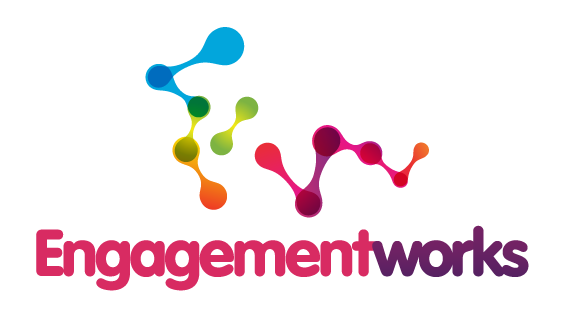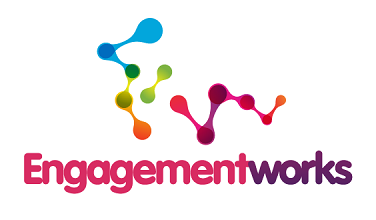A growing number of organisations recognise the value of building meaningful relationships with stakeholder and community groups. Some of those organisations have built engagement strategies that outline the principles they will apply to this relationship building.
‘Community engagement’ is a generic term covering what are widely regarded as three levels of engagement: Information Transfer; Consultation; and Active Participation.
The word ‘community’ is also a broad term used to define groups of people; whether they are stakeholders, interest groups, or citizen groups. A community may be a geographic location (community of place); a community of similar interest, concern or passion (community of practice); or a community of affiliation or identity (such as an industry or sporting club).
‘Community engagement’ is therefore a planned process with the specific purpose of working with identified groups of people, whether they are connected by geographic location, special interest, or affiliation or identity to address issues affecting their well-being. The linking of the term ‘community’ to ‘engagement’ broadens the scope, shifting the focus from an individual to a collective, with associated implications for inclusiveness to ensure consideration is given to the diversity that exists within any community.
Community engagement should be a significant part of how a connected organisation goes about its daily business.
Some organisations, such as central and local government agencies, do engagement because there is a statutory requirement for them to do so. Some engage because they value the knowledge and differing perspectives that members of their communities have. Some engage because they rely on the involvement of community members to make things happen for them. Some engage because there are communities that value and understand what that organisation does and who want to learn more about that.
Many engagement practices are formulaic: organisations always do what they’ve always done. This can make it hard for them to get new perspectives or information in different forms. Consultation is often done by various operational teams within an organisation and there are few opportunities for them to learn from others about other options that may be available for consultation and also to learn when another part of the organisation may be planning to deal with the same community that they want to consult with or may have dealt with recently.
Enhancing community engagement responsibilities and activities should be based on an aligned and supportive organisational culture and international best practice. While engagement projects may come and go with elected representatives and staff, the organisation’s relationships with its communities need to endure and should be managed with a long term view.
‘Success’ for community engagement is as much about organisational culture as it is about skills and tools. Therefore it is important that engagement is ‘owned’ by senior managers and organisational leaders as well as by engagement practitioners. It needs to be role-modelled from the top down.
Engagement should be a regular agenda item for divisional, departmental and team meetings, just as health and safety is in many organisations.
Engagement criteria should be included in key performance indicators, particularly those of the CEO, engagement practitioners and their managers. The level of those criteria should change depending on the extent or priority engagement has to the individual concerned.
It you’d like to learn more about community engagement strategies and practices and how these can add value to your organisation, please get and touch. We’d be delighted to help you. Email us at admin@engagementworks.co.nz or join our mailing list.
‘Community engagement’ is a generic term covering what are widely regarded as three levels of engagement: Information Transfer; Consultation; and Active Participation.
The word ‘community’ is also a broad term used to define groups of people; whether they are stakeholders, interest groups, or citizen groups. A community may be a geographic location (community of place); a community of similar interest, concern or passion (community of practice); or a community of affiliation or identity (such as an industry or sporting club).
‘Community engagement’ is therefore a planned process with the specific purpose of working with identified groups of people, whether they are connected by geographic location, special interest, or affiliation or identity to address issues affecting their well-being. The linking of the term ‘community’ to ‘engagement’ broadens the scope, shifting the focus from an individual to a collective, with associated implications for inclusiveness to ensure consideration is given to the diversity that exists within any community.
Community engagement should be a significant part of how a connected organisation goes about its daily business.
Some organisations, such as central and local government agencies, do engagement because there is a statutory requirement for them to do so. Some engage because they value the knowledge and differing perspectives that members of their communities have. Some engage because they rely on the involvement of community members to make things happen for them. Some engage because there are communities that value and understand what that organisation does and who want to learn more about that.
Many engagement practices are formulaic: organisations always do what they’ve always done. This can make it hard for them to get new perspectives or information in different forms. Consultation is often done by various operational teams within an organisation and there are few opportunities for them to learn from others about other options that may be available for consultation and also to learn when another part of the organisation may be planning to deal with the same community that they want to consult with or may have dealt with recently.
Enhancing community engagement responsibilities and activities should be based on an aligned and supportive organisational culture and international best practice. While engagement projects may come and go with elected representatives and staff, the organisation’s relationships with its communities need to endure and should be managed with a long term view.
‘Success’ for community engagement is as much about organisational culture as it is about skills and tools. Therefore it is important that engagement is ‘owned’ by senior managers and organisational leaders as well as by engagement practitioners. It needs to be role-modelled from the top down.
Engagement should be a regular agenda item for divisional, departmental and team meetings, just as health and safety is in many organisations.
Engagement criteria should be included in key performance indicators, particularly those of the CEO, engagement practitioners and their managers. The level of those criteria should change depending on the extent or priority engagement has to the individual concerned.
It you’d like to learn more about community engagement strategies and practices and how these can add value to your organisation, please get and touch. We’d be delighted to help you. Email us at admin@engagementworks.co.nz or join our mailing list.

 RSS Feed
RSS Feed
